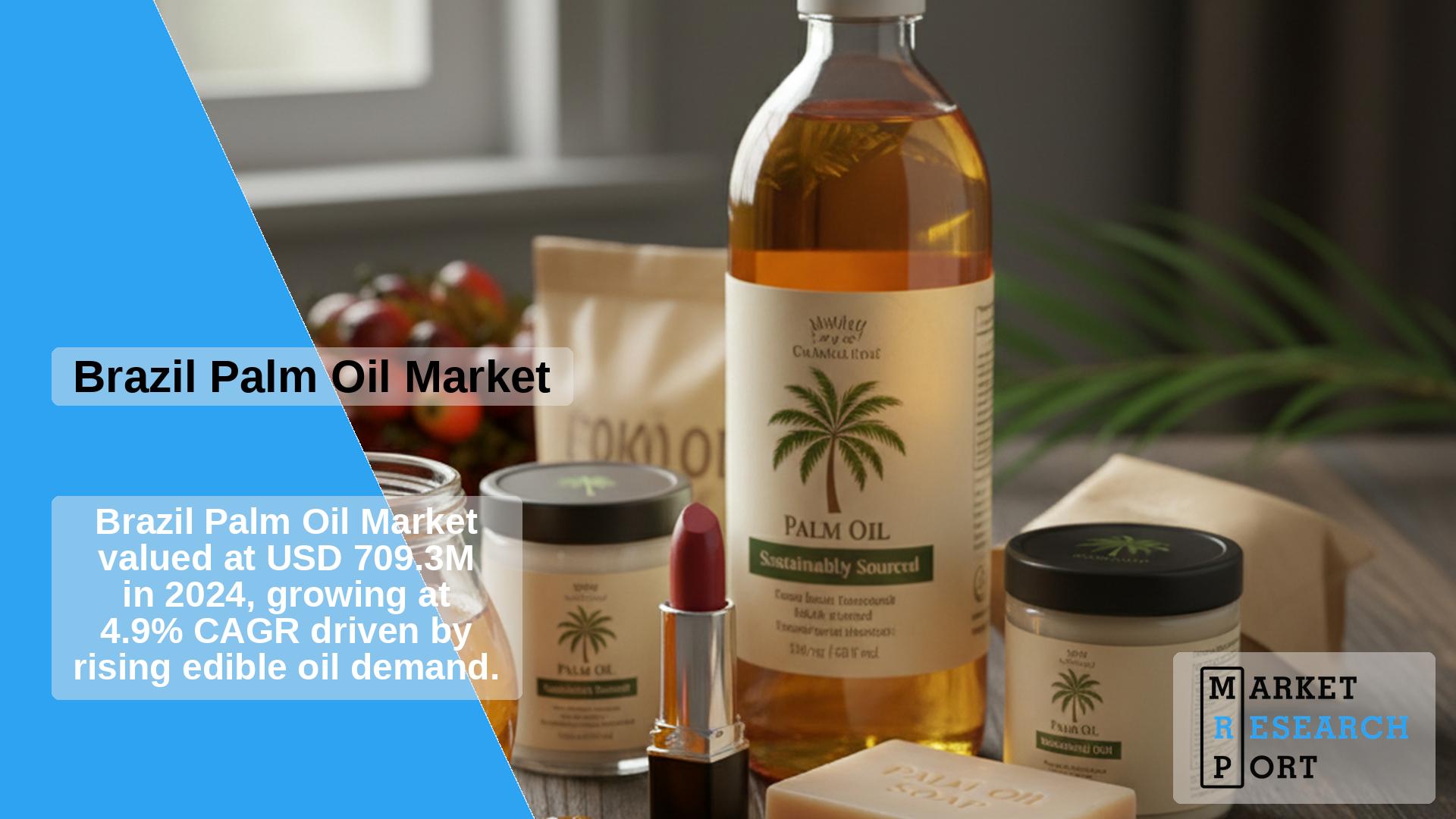
Brazil’s palm oil industry reached a valuation of USD 709.3 million in 2024 and is on track for steady expansion, with a CAGR of 4.9% predicted between 2025 and 2030. This growth stems from palm oil’s reputation as an affordable, flexible, and efficient vegetable oil option, ideal for manufacturers across multiple sectors. As consumer demand for environmentally responsible products grows, producers are integrating more sustainable and ethical practices. Biofuels and processed foods are key drivers, positioning palm oil as a strategic ingredient supporting both economic and ecological priorities within Brazil.
The evolution of Brazil’s biofuels sector has led to heightened demand for palm oil, favored for its versatility and high output for biodiesel. The nation’s food industry also relies on palm oil’s cost savings and shelf stability, especially in processed and packaged goods. Continued momentum in both biofuels and food processing is anticipated to propel palm oil consumption upward in the foreseeable future.
Fractionated palm oil led the market in 2024, claiming 40.0% of total revenue. Its adaptability enables manufacturers to tailor its composition, providing advantages in food, cosmetics, and energy applications. The growing preference for products with longer shelf lives and healthier profiles, combined with economic factors, has solidified its role within Brazil’s palm oil sector. Increasing utilization both domestically and internationally contributes to its dominant share.
Crude palm oil is expected to be the quickest growing product group, predicted to see a CAGR of 4.7% from 2025 to 2030. Demand stems from the search for efficient edible oils and the expanding biodiesel sector. As Brazil looks to diversify export offerings, crude palm oil’s cost competitiveness and optimal yield per hectare make it an attractive choice for both domestic and global markets. The move towards cleaner energy sources also supports its growing appeal.
The food and beverage category represented 63.2% of the market share in 2024, driven by palm oil’s role in cooking, processed foods, and snack production. Food companies favor palm oil thanks to its affordability, adaptable structure, and stability at high heat—qualities ideal for frying and baking. The growing trend for packaged and quick-preparation foods ensures palm oil maintains its leading position in this segment.
Biofuel and energy applications are marked by rapid growth, with projections indicating a CAGR of 5.3% between 2025 and 2030. Palm oil’s high yield makes it a promising source for renewable fuels as Brazil focuses on sustainable energy targets. Government initiatives to promote biofuel development have helped stimulate demand, supporting environmental progress and market expansion.
Notable participants in Brazil’s palm oil sector include Archer Daniels Midland Company, BELEM BIOENERGIA BRASIL S.A., AgroPalma, BIOPALMA, Denpasa, Marborges Agroindústria SA, Grupo BBF (Brasil Biofuels), Cargill, Kellogg (Kellanova), and General Mills Inc.
|
Report Attribute |
Details |
| Market size value in 2025 | USD 740.0 million |
| Revenue forecast for 2030 | USD 940.7 million |
| Annual growth rate | CAGR of 4.9% from 2025 to 2030 |
| Reference year for estimate | 2024 |
| Historic data reviewed | 2018 – 2024 |
| Forecast range | 2025 – 2030 |
| Quantitative measures | Volume (kilotons), revenue (USD million), and CAGR (2025–2030) |
| Report coverage | Revenue projections, company rankings, competitive overview, market drivers, and trends |
| Segments analyzed | Product types, applications |
| Companies featured | Archer Daniels Midland Company; BELEM BIOENERGIA BRASIL S.A.; AgroPalma; BIOPALMA; Denpasa; Marborges Agroindústria SA; Grupo BBF (Brasil Biofuels); Cargill; Kellogg (Kellanova); General Mills Inc. |
The report provides national-level market forecasts and presents the latest trends for sub-categories from 2018 to 2030. Segmentation covers both product and application perspectives: